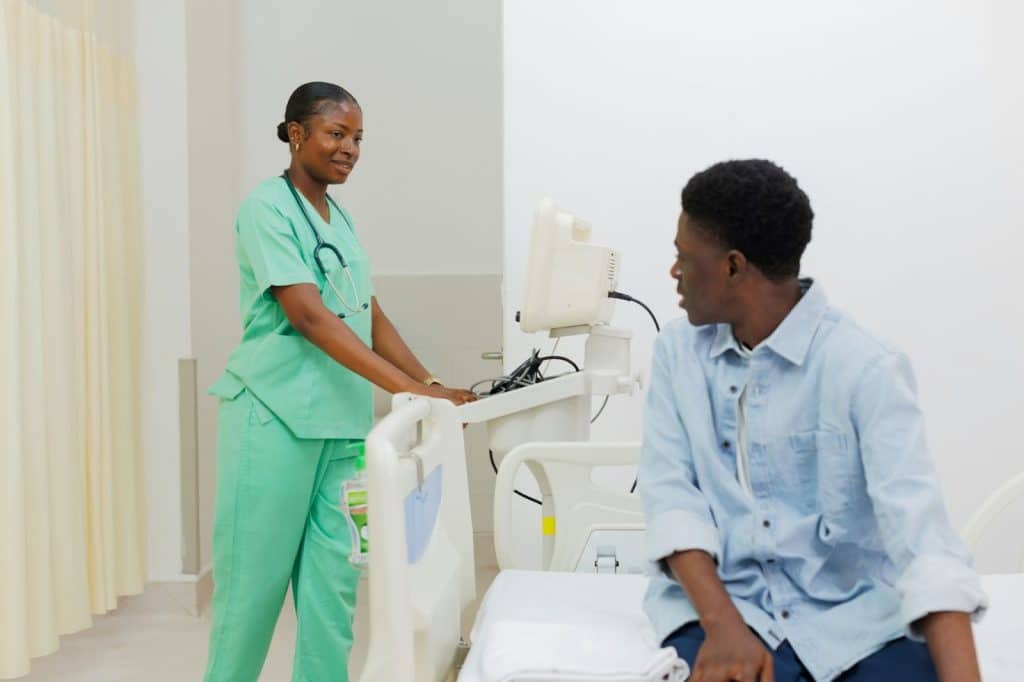
The decade between 40 and 50 can be a turning point for men’s health. It’s a time when silent conditions can start developing, and early detection becomes one of the most powerful tools for long-term well-being. Regular screenings can catch potential problems before they become serious, and in many cases, before symptoms even appear. These tests aren’t about being paranoid; they’re about being prepared. Here are 19 essential health checks that can help protect longevity and quality of life.
Blood Pressure Screening
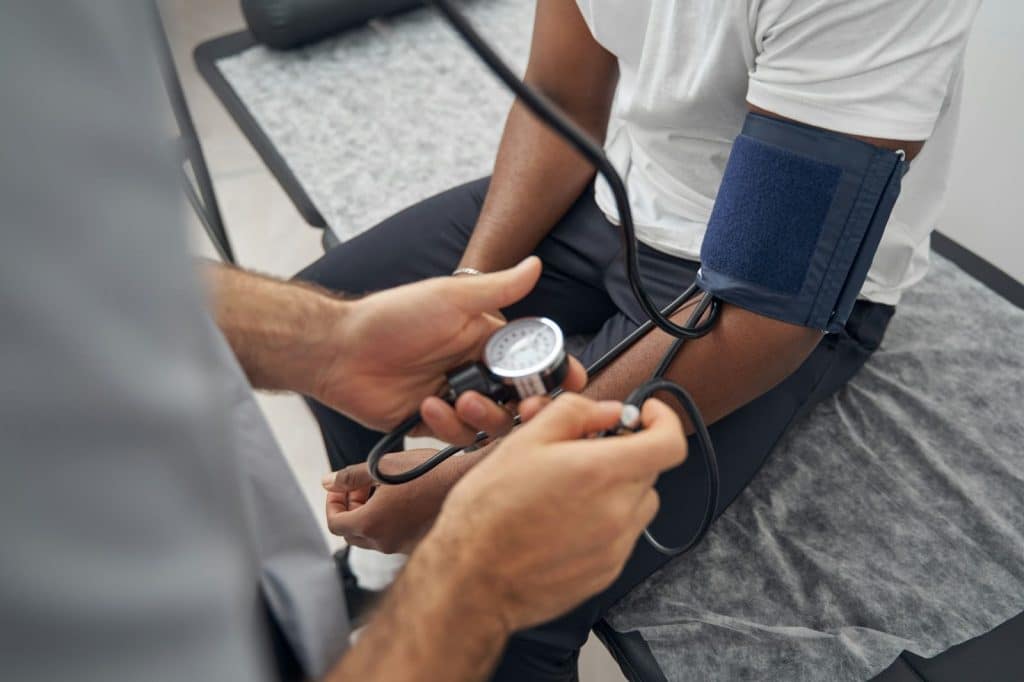
High blood pressure is often called the “silent killer” because it can go unnoticed for years. Regular checks help detect hypertension early, reducing the risk of stroke, heart attack, and kidney damage. Men between 40 and 50 should have their blood pressure measured at least once a year, more often if risk factors exist. Treatment can include lifestyle changes and medication if needed. Catching it early helps preserve long-term cardiovascular health.
Cholesterol Test (Lipid Panel)
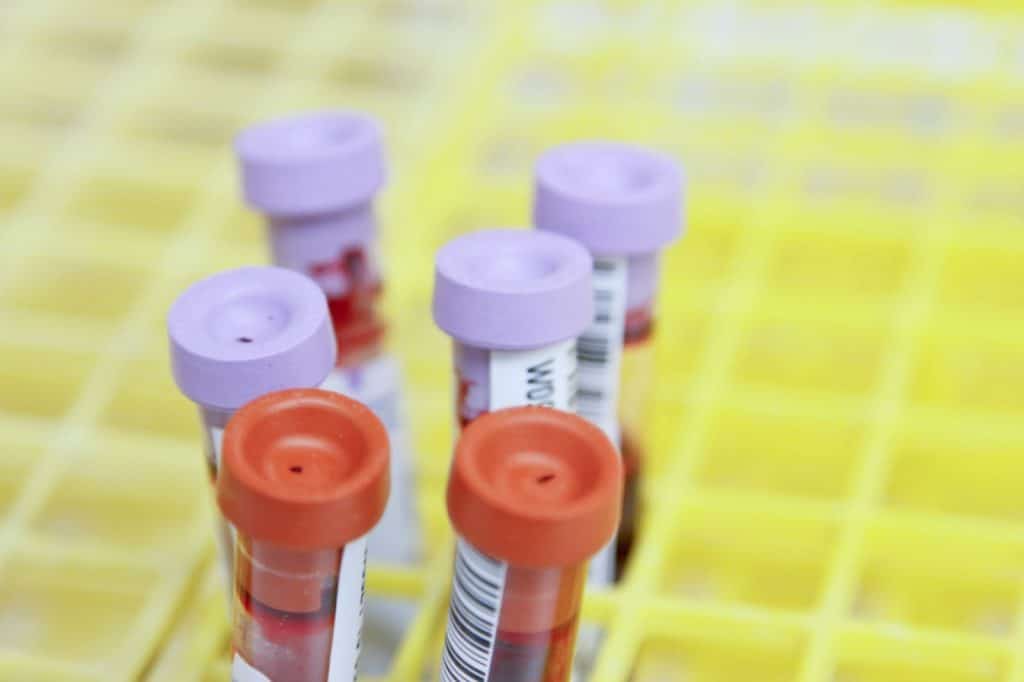
A lipid panel measures LDL (“bad” cholesterol), HDL (“good” cholesterol), and triglycerides. Elevated cholesterol levels can lead to plaque buildup in arteries, raising heart disease risk. Most guidelines suggest men in this age group get tested every 4–6 years, but more frequently if there’s a family history of heart problems. The test is quick and only requires a blood sample. Early awareness can guide diet, exercise, and medical decisions.
EKG (Electrocardiogram)
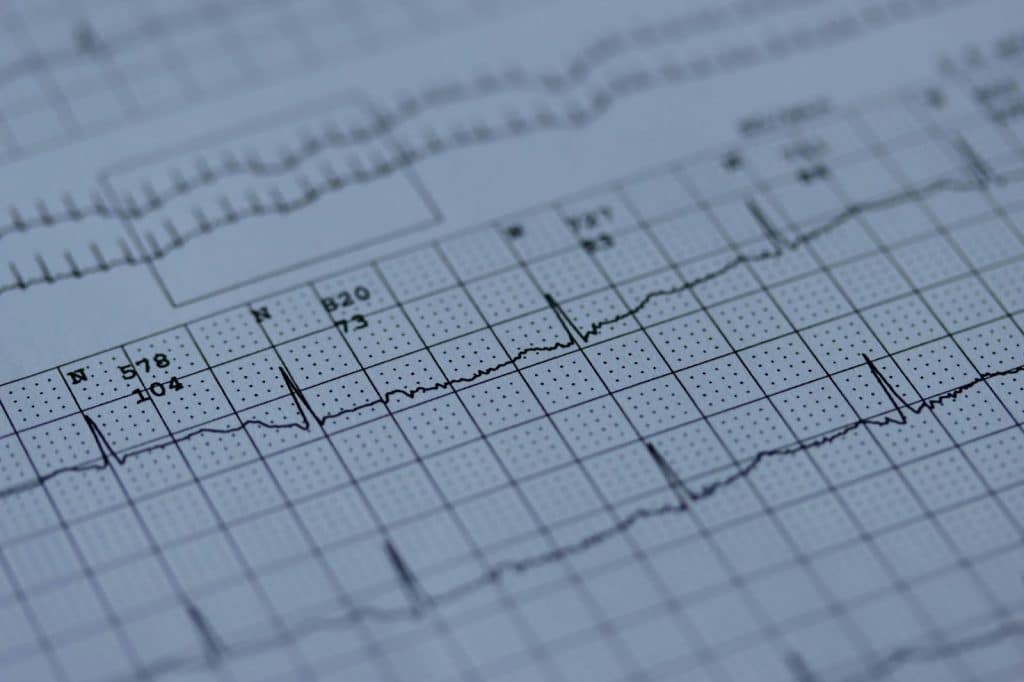
An EKG records the electrical activity of the heart and can identify irregular rhythms or signs of heart disease. Men over 40 with symptoms like chest pain or shortness of breath should have one sooner rather than later. Even in the absence of symptoms, it can be part of a cardiac risk assessment for those with high-risk profiles. The test is painless and takes only minutes. It can provide peace of mind or prompt timely intervention.
Coronary Calcium Scan

A coronary calcium scan uses a CT scan to measure calcium deposits in heart arteries. These deposits are early indicators of atherosclerosis, which can lead to heart attacks. While not necessary for everyone, it’s recommended for men with risk factors like smoking history or high cholesterol. The result, a calcium score, helps doctors predict heart disease risk more accurately. This information can guide preventive steps before symptoms start.
Prostate Exam (PSA Test & Digital Rectal Exam)

Prostate cancer is one of the most common cancers in men, and early detection is crucial. A PSA blood test measures prostate-specific antigen levels, while a digital rectal exam checks for abnormalities. Men should discuss with their doctor when to start screening, typically between 45–50 for average risk and earlier for higher risk. Early detection often means more treatment options and better outcomes.
Colonoscopy

Colorectal cancer risk increases with age, making a colonoscopy a key screening tool. It can detect and remove precancerous polyps before they become dangerous. Men with average risk should start at age 45, but earlier if there’s a family history. The preparation may be inconvenient, but the test itself is quick under sedation. It’s one of the most effective ways to prevent colon cancer.
Skin Cancer Screening

Skin cancer can develop in areas exposed to the sun or hidden spots. A dermatologist can perform a full-body exam to check for suspicious moles or lesions. Men with fair skin, high sun exposure, or family history should be especially vigilant. Annual screenings can catch melanoma and other skin cancers early, when they’re most treatable. Self-checks between appointments add another layer of protection.
Lung Cancer Screening (For At-Risk Men)
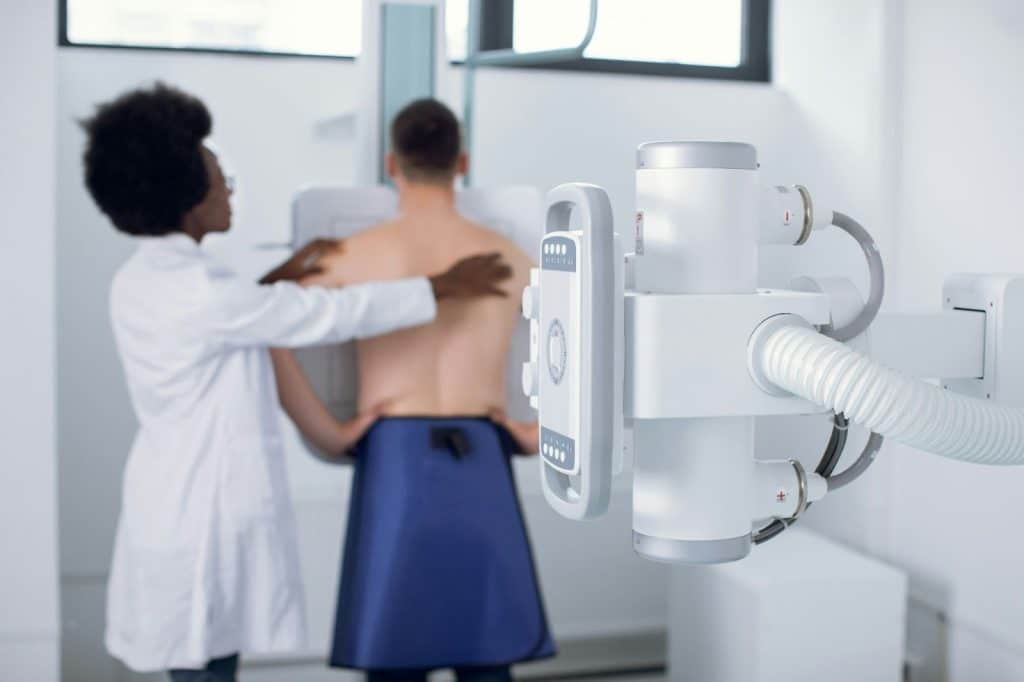
Men aged 50 and younger generally don’t need lung cancer screening unless they have a history of heavy smoking. For those who qualify, a low-dose CT scan can detect tumors at an earlier, more treatable stage. This is especially important for former smokers who quit within the past 15 years. Screening is quick and non-invasive. It can be life-saving for those at elevated risk.
Blood Sugar (A1C Test)

An A1C test measures average blood sugar levels over the past 2–3 months. It’s a key tool for detecting prediabetes or diabetes before symptoms appear. Men over 45 should be screened, especially if overweight or with a family history. Early detection can reverse or manage the condition through diet, exercise, and medication. Regular testing helps prevent long-term complications like nerve damage and heart disease.
Testosterone Levels

Testosterone naturally declines with age, but a sharp drop can affect mood, energy, muscle mass, and bone density. Testing can confirm whether symptoms like fatigue or low libido are linked to hormone levels. While not every man needs routine testing, it can be valuable for those experiencing changes that affect quality of life. Treatments and lifestyle adjustments can help restore balance. Knowing the numbers helps guide smart decisions.
Thyroid Function Test
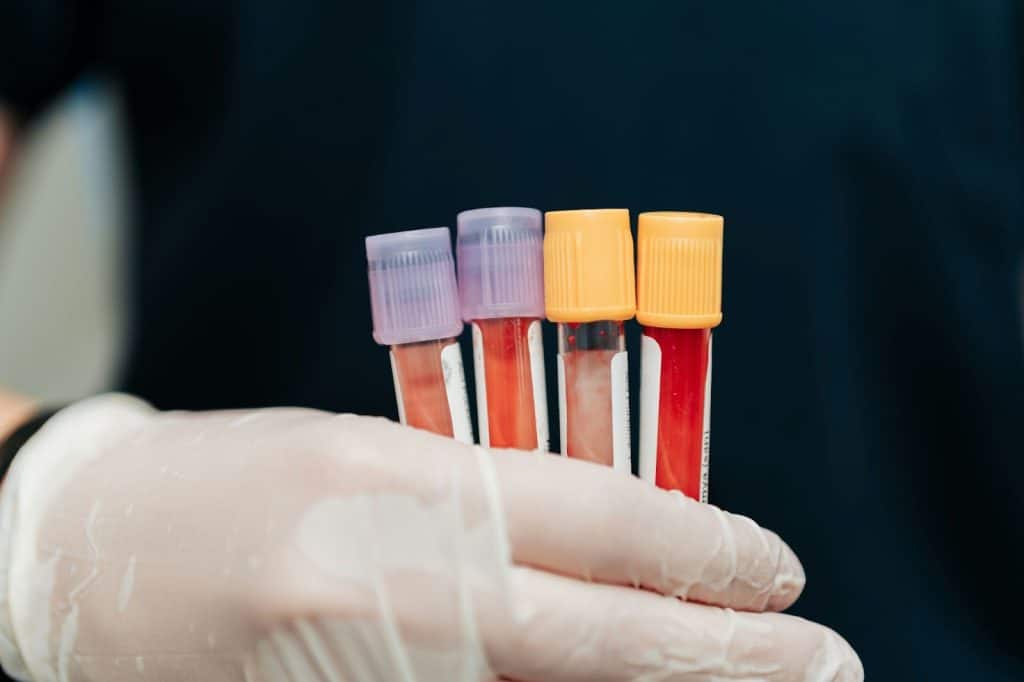
The thyroid regulates metabolism, energy, and mood. A blood test measuring TSH (thyroid-stimulating hormone) can detect underactive or overactive thyroid conditions. Symptoms like unexplained weight change, fatigue, or depression may prompt testing. Thyroid disorders are manageable once diagnosed. Regular checks ensure your metabolism stays on track.
Vitamin D Levels

Vitamin D plays a role in bone health, immune function, and mood regulation. Low levels are common, especially in men who spend little time outdoors. A simple blood test can measure your levels and determine if supplements are needed. Adequate vitamin D helps prevent osteoporosis and supports overall health. This is one of the easiest deficiencies to fix once identified.
Vision Exam
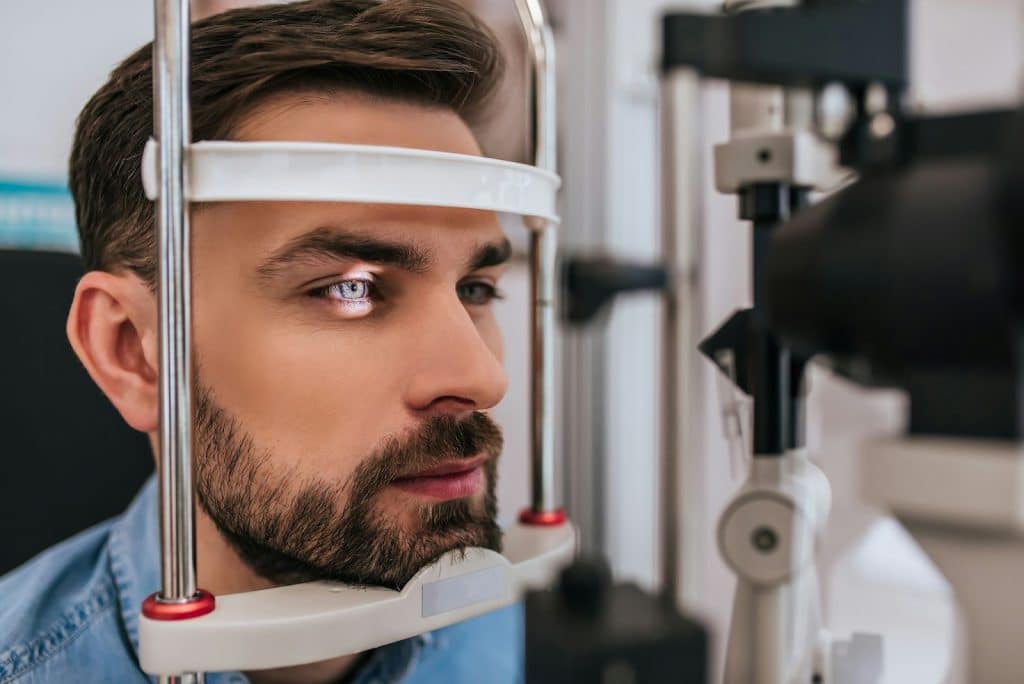
Eyesight changes can happen gradually, making regular eye exams important. Optometrists check for vision problems, glaucoma, and early signs of cataracts. Men over 40 should have their vision tested every 1–2 years. Early detection helps maintain independence and prevents avoidable vision loss. Protective steps can slow the progression of common eye conditions.
Hearing Test
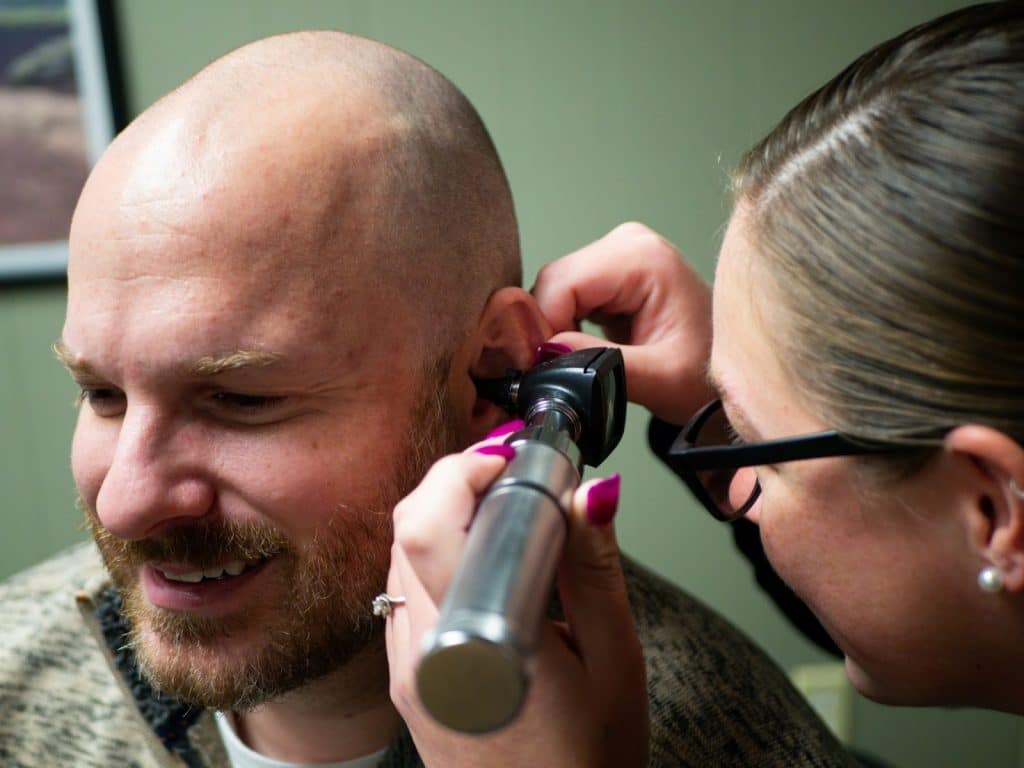
Hearing loss can impact communication, work, and safety. A baseline hearing test in your 40s helps identify early changes. Untreated hearing loss is linked to cognitive decline, so early intervention matters. Audiologists can recommend hearing aids or other solutions if needed. Protecting hearing now can improve quality of life for decades.
Memory & Cognitive Screening

While dementia is more common in older adults, early cognitive changes can begin in midlife. A short screening assesses memory, attention, and problem-solving skills. Early detection allows for lifestyle changes that support brain health. Screening can be part of an annual physical if concerns arise. Keeping the mind sharp is as important as keeping the body fit.
Dental Check-Up

Oral health affects more than just teeth, gum disease is linked to heart disease and diabetes. Men should have dental exams and cleanings at least twice a year. These visits detect cavities, oral cancer, and gum issues early. Good oral hygiene supports overall health and prevents painful problems. Preventive care is always easier than major dental work.
Bone Density Scan
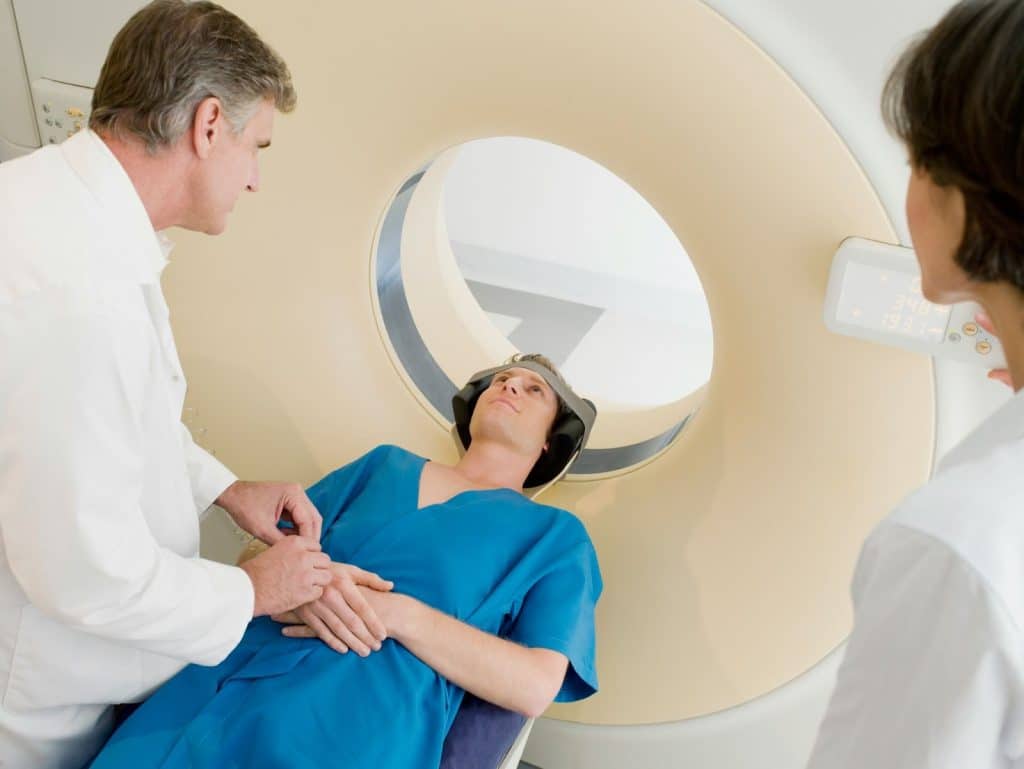
Osteoporosis isn’t just a women’s health issue, men can lose bone mass too. A bone density scan measures bone strength and fracture risk. Men over 50 with risk factors may need this earlier. Strong bones reduce injury risk and maintain mobility. Prevention starts before bones become fragile.
Abdominal Aortic Aneurysm Screening

An abdominal aortic aneurysm (AAA) is a dangerous bulge in the main artery. Men aged 65+ are most at risk, but those over 40 with a family history or smoking history should discuss screening earlier. An ultrasound can detect the aneurysm before it ruptures. It’s quick, painless, and potentially lifesaving. Knowing your risk is the first step in prevention.
Comprehensive Physical Exam

An annual physical brings all these elements together. Your doctor reviews test results, checks vital signs, and updates vaccinations. It’s also an opportunity to discuss concerns and set health goals. A yearly exam keeps your health on track and ensures no screening is overlooked. Think of it as your yearly reset for wellness.
Conclusion

Between 40 and 50, men have the opportunity to take proactive control of their health. Regular screenings aren’t just about catching disease, they’re about building a foundation for decades of vitality. The tests on this list cover everything from heart and hormone health to cancer prevention and cognitive well-being. By staying ahead of potential problems, men can protect their independence, longevity, and quality of life. Preventive care is an investment that always pays off.






Ask Me Anything